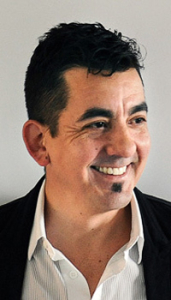
Professor of Art Ken Gonzales-Day
Professor of Art Ken Gonzales-Day, an internationally acclaimed Los Angeles-based artist known for his thought-provoking photographs, was recently featured on New York’s progressive radio station WBAI 99.5 FM to challenge the misperception that lynchings didn’t occur in California.
“It’s a history that has been erased from cultural memory,” says Gonzales-Day, who also chairs Scripps College’s art department.
In this Feb. 10 interview with the hosts of WBAI’s Asian Pacific Forum, Gonzales-Day discusses his research findings of the 1871 Chinese massacre, in which 18 to 25 Chinese immigrants were lynched in downtown Los Angeles. A private marker commemorates the site of the massacre, he says. However, the locations where other known lynchings occurred throughout the state do not have any markers and remain invisible, he says.
In his “Erased Lynching” series, Gonzales-Day calls attention to the forgotten history of the hundreds of lynchings of Chinese and Mexican immigrants in the West.
For six years, Gonzales-Day documented the locations of several lynchings that occurred in the 1800’s throughout California. His artworks hauntingly focus on the trees from which victims were hung by angry mobs.

